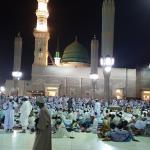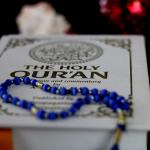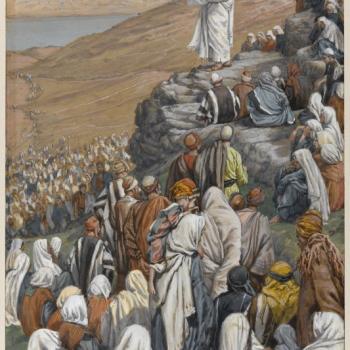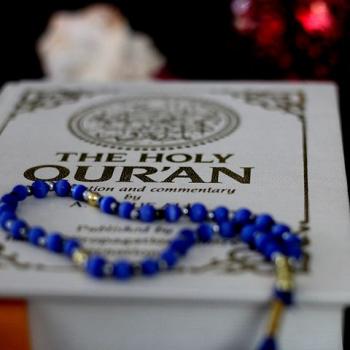Annunciation is widely celebrated by Christians. It is the announcement, or glad tidings, to Mary by archangel Gabriel, about the birth of Jesus Christ. The annunciation, or the announcement, also appears in the Qur’an. Even though annunciation traditionally refers only in relation to Mary and Jesus Christ, both the Qur’an and the Bible speaks of other annunciations, notably to Zechariah for John the Baptist(known as Yahya in the Qur’an) and Abraham (for Isaac and Ishmael). This is a 3-part post and the focus of part 1 is on Mary, the mother of Jesus Christ.
We will examine the annunciation as it appears in the Bible, more specifically the Gospel of Luke, and compare it with the annunciation as it appears in the Qur’an.
Annunciation in the Bible (Luke 1:26–36)
Christians believe that Mary knew about Jesus’s birth without a father when archangel Gabriel announced it to her. The belief comes from the teachings of the Gospels.
In the sixth month of Elizabeth’s pregnancy, God sent the Angel Gabriel to Nazareth, a village in Galilee, to a virgin named Mary. She was engaged to be married to a man named Joseph, a descendant of King David. Gabriel appeared to her and said, ‘Greetings, favored woman! The Lord is with you!’
Confused and disturbed, Mary tried to think what the angel could mean. ‘Don’t be afraid, Mary,’ the angel told her, ‘for you have found favor with God! You will conceive and give birth to a son, and you will name him Jesus. He will be very great and will be called the son of the Most High. The Lord God will give him the throne of his ancestor David. And he will reign over Israel forever; his Kingdom will never end!’ Mary asked the angel, ‘But how can this happen? I am a virgin.’
The angel replied, ‘The Holy Spirit will come upon you, and the power of the Most High will overshadow you. So the baby to be born will be holy, and he will be called the son of God. What’s more, your relative Elizabeth has become pregnant in her old age! People used to say she was barren, but she’s now in her sixth month. For nothing is impossible with God.’
Annunciation in the Qur’an
The annunciation appears at least on two separate occasions.
Surah Maryam (Chapter named after Mary)-19:16-22
The Qur’an does not name the angel but is widely believed to be archangel Gabriel. The annunciation starts by an address to Prophet Muhammad by name, one of only three times he is mentioned by name (the fourth time as Ahmad, his other name).
O Muhammad, relate to them the story of Maryam in the Book (the Qur’an) when she withdrew from her family to a place in the East. She chose to be secluded from them. We sent to her Our angel and he appeared before her as a grown man. She said: “I seek Rahman’s (The Gracious-God’s) protection against you, leave me alone if you are God fearing.” He said: “Don’t be afraid, I am merely a messenger from your Rabb [Lord] to tell you about the gift of a holy son.
She said: “How shall I bear a son, no man has ever touched me nor am I unchaste?” The angel replied: “So shall it be—Your Lord says: “It is easy for Me. We wish to make him a Sign for mankind and a blessing [mercy] from Us—and this matter has already been decreed.” So she conceived the child and she retired with him to a remote place.
In both narrations in the Qur’an and the Bible, Mary is confused and/or afraid and is reassured by the angel. In both instances, she reminds the angel of her virginity and is told the son/baby will be holy. The Qur’an goes on to say that it is easy for God. In other teachings within islam, God reminds us that Jesus was born without a father, but God created Adam without a father AND a mother.
Annunciation in the Qur’an- chapter 3
In chapter 3, in addition to the glad tidings of a holy son, God tells Mary the name of the son, Jesus and that he will be the messiah, held in high honor and nearest to God.
Behold! The angels said: ‘O Mary! Allah gives you glad tidings of a Word from Him: his name will be Christ [masiyah, messiah] Jesus, the son of Mary, held in honor in this world and the Hereafter and of (the company of) those nearest to Allah; He shall speak to the people in childhood and in maturity. And he shall be (of the company) of the righteous.’ 3:45–46
The big difference, and where the views diverge significantly is on the dogma of incarnation. Christians believe in the ‘birth of God in human flesh’, whereas the Qur’an very clearly refutes it.
Birth of Jesus Christ in the Qur’an
This narrations around the birth of Jesus are not found in the New Testament.
And the pains of childbirth drove her to the trunk of a palm-tree: She cried (in her anguish): “Ah! would that I had died before this! would that I had been a thing forgotten and out of sight!”
Then (the child) called out to her from beneath her: Grieve not, surely your Lord has made a stream to flow beneath you;
And shake towards you the trunk of the palm tree, it will drop on you fresh ripe dates:
So eat and drink and refresh the eye. Then if you see any mortal, say: Surely I have vowed a fast to the Beneficent Allah, so I shall not speak to any man today.
The Qur’an: 19:23-26
Jesus speaks from the cradle
The Qur’an is very keen on testifying to the chastity and purity of Mary, the mother of Jesus. and is very harsh on those who doubted her. When questioned by her people as to how she could bear a child without a father, she asked the baby Jesus to speak in her mother’s defense! (“Sister of Aaron” in this passage is in reference to Mary being from the progeny of Aaron, not his sister from the same parent).
At length she [Mary] brought the (baby) to her people, carrying him (in her arms). They said: ‘O Mary! Truly an amazing thing hast thou brought! O sister of Aaron! Your father was not a man of evil, nor your mother a woman unchaste!’ But she pointed to the baby. They said: ‘How can we talk to one who is a child in the cradle?’ He (Jesus) said:
‘I am indeed a servant of Allah: He has given me revelation and made me a prophet; And He has made me blessed wheresoever I be, and has enjoined on me prayer and charity as long as I live; (He) has made me kind to my mother, and not overbearing (or hard to deal with); So peace is on me the day I was born, the day that I die, and the day that I shall be raised up to life (again)!’ Such (was) Jesus the son of Mary: (it is) a statement of truth, about which they (vainly) dispute.”
The Qur’an 19:27–34
It is based on these and other passages in the Qur’an that both Mary and Jesus are highly revered in Islam, Jesus being on of the 5 most exalted Prophets.
The next 2 posts will highlight the passages from the Bible and the Qur’an on the annunciation to Zechariah and Abraham.
Don’t forget to sign up for my newsletter in the upper right corner of this post.













